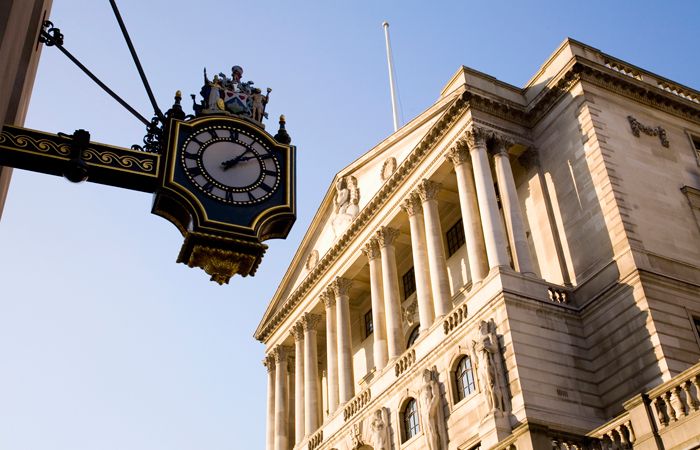
Tomorrow (17 March) the Bank of England (BoE) is expected to raise rates again in a bid to curb inflation that continues to climb.
This will be the second rate rise in two months since the central bank’s Monetary Policy Committee voted 5-4 in favour of raising the interest rate from 0.25% to 0.50%.
With another hike expected tomorrow, mortgage brokers understand the logic but are critical of the timing. Specifically, those working in the mortgage industry are way of the added financial pressure a rate rise now could put on households.
“Should the BoE raise interest rates?”, asks Finanze managing director Alastair Hoyne.
“Without a shadow of a doubt, yes. Can consumers and households afford it? No, far from it.”
The impact on mortgage repayment affordability has been cited as the main issue.
Here, the “marginal creeping up” of rates is not helping households or the wider economy, according to Shaw Financial Services founder and mortgage expert Lewis Shaw.
Combined with climbing household expenses such as energy costs, he questions the logic of potentially disadvantaging homeowners: “We’re about to make the most significant single debt most householders have, their mortgage, more expensive.
“Not to mention, push too hard on rate rises now and there’s a very real risk of prices flattening, and a worry they may reduce. Given the government is on the hook backstopping a lot of high LTV mortgages, at a time of economic pain it’s not such a wise thing to put more pressure on public finances by lumping private mortgages into the mix.”
This is the same perspective as held by Your Mortgage Decisions director Dominik Lipnicki, who recognises real pressures on the clients he works with.
“Borrowers are now faced with eyewatering household bills and a real cost of living crisis, made only worse by the upcoming National Insurance rise and another energy price cap rise in October where inflation could hit double figures.
“All of this will without a doubt have a serious impact on affordability calculations when applying for a mortgage,” says Lipnicki.
“We may well see further base rate rises in the coming year, making for a much harsher mortgage lending environment, with some being priced out of the market.”
Playing devil’s advocate, Hoyne concedes the pressure the BoE is under, and points to the wider economic context as contributing to the current situation: “Ever since the Global Financial Crisis and the arrival of quantitative easing, Threadneedle Street has created a synthetic booming economy.
“The banks have been lending phenomenal amounts of printed money, creating excessive debt, allowing consumers to buy whatever they want, and buy it now. This has led to inflation getting out of control and now, with the war in Ukraine causing the price of oil to surge, individual households have been left ‘in the cold’ metaphorically and literally. The BoE is in an almost impossible position.”
Also critical is London money director Martin Stewart. However, he questions the timing of the rate hike more than anything, given the current inflationary pressures being faced by families.
“Personally, I don’t think mortgage affordability is the elephant in the room presently,” said Stewart.
“Is now the time for the BoE to throw petrol on the fire? Do we really think a 0.25% base rate increase is going to help the consumer at a time when we they need support, not the tapering of something which can run a few more months and until time things are a little clearer?”
Given tomorrow’s interest rate is taking place during the ongoing Russian/Ukraine conflict, which is already impacting markets, the London Money director questions whether current timing may be too sensitive to tweak the base rate.
He adds: “At some point they will need to return the base rate to some level of economic functionality but, given the current levels of geo-political uncertainty, I would argue waiting a couple more months to see how everything will play out, wouldn’t be the worst idea in the world.”
Adopting a more optimistic perspective is Cyborg Finance chief executive Adam Hosker, who points out rising inflation has the potential to support borrowers.
“Inflation itself is a borrower’s friend,” says Hosker.
“Inflation can reduce the value of debt if your wages/rents keep pace. The trend towards longer-term fixed mortgages and official statistics showing wages rising keeps me optimistic.
“We asked 54 property investors if they thought ‘Property is a hedge against inflation’ – a resounding 88% agreed it was. Borrowers, as well as being cautious of their mortgage rates, need to ask for wage increases and rent increases to keep up the fight.”



